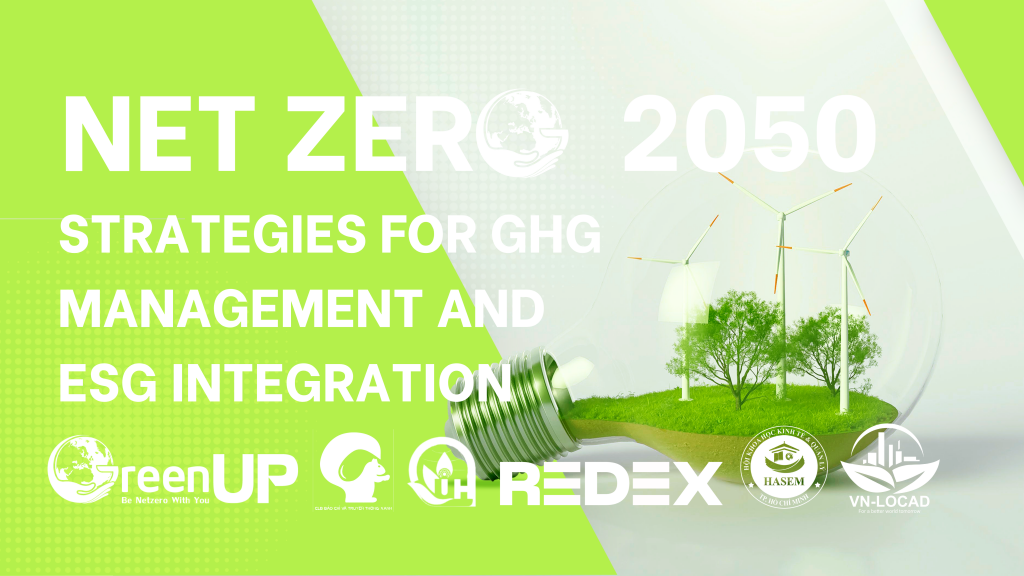In a significant stride towards sustainable development, GreenUP recently played an important role in organizing the “Strategies for GHG Management and ESG Integration” seminar. This event, a collaborative effort with the Vietnam Center for Low Carbon Development (VN-LOCAD) and Ho Chi Minh City Association of Science for Economy and Management (HASEM), was designed as a platform for in-depth discussions on the evolving landscapes of Greenhouse Gas (GHG) Inventory and Environmental, Social, and Governance (ESG) solutions.
At GreenUP, we specialize in advancing sustainability and supporting environmental goals through our Renewable Energy Certificates (RECs) trading services. We provide a comprehensive platform that enables businesses and individuals to offset their carbon footprint and support renewable energy projects. By facilitating the purchase and sale of RECs, we empower our clients to contribute to global efforts in reducing carbon emissions and promoting green energy, all while adhering to the highest standards of transparency and integrity in the market.
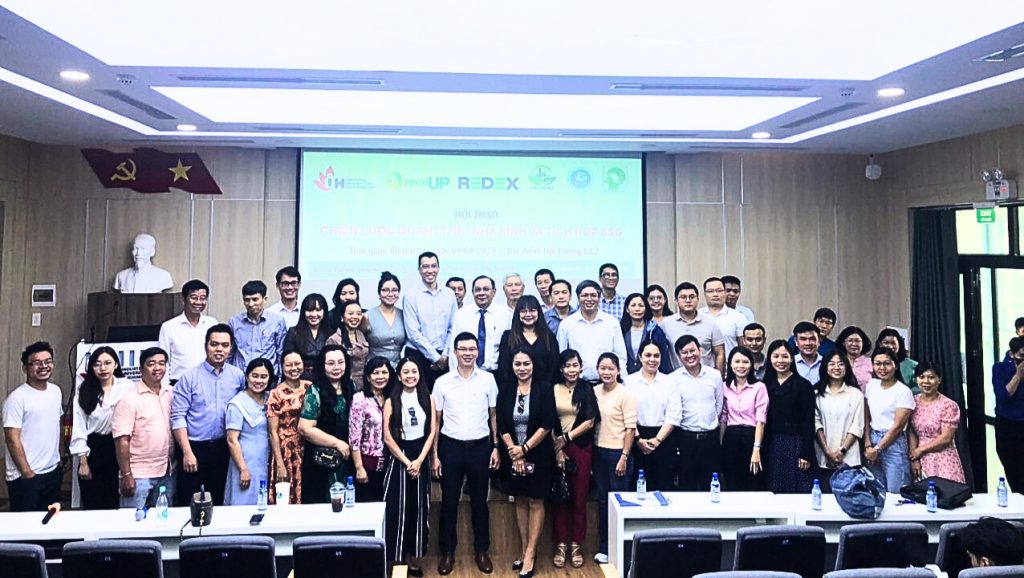
The workshop commenced with a warm welcome and insightful opening remarks by Mr. Quan, the vice president of HASEM. Mr. Quan set the tone for the event by emphasizing the critical importance of collaborative efforts in tackling GHG emissions and integrating ESG principles into the corporate ethos.
GreenUP’s Take on ESG Integration
The Rising Tide of Sustainable Investing
Sunny Tran, Business Development Manager at GreenUP, began by highlighting the astronomical rise in sustainable investing, which now encompasses more than $35 trillion across the globe’s major markets, representing over a third of total assets. This surge underscores a profound shift in investment paradigms, with a growing recognition of the importance of sustainability factors in investment decision-making. Sunny has prior experience in ESG data consulting and data strategy at Neudata and Point72 Asset Management in London, managing projects in many different countries.
Sunny provided a narrative on the inception and growth of GreenUP, detailing its journey from its roots in investment funds in Vietnam to its establishment in early 2021. With a clear mission to foster green energy projects and sustainable practices, GreenUP has positioned itself as a key player in advancing ESG integration within the business community.
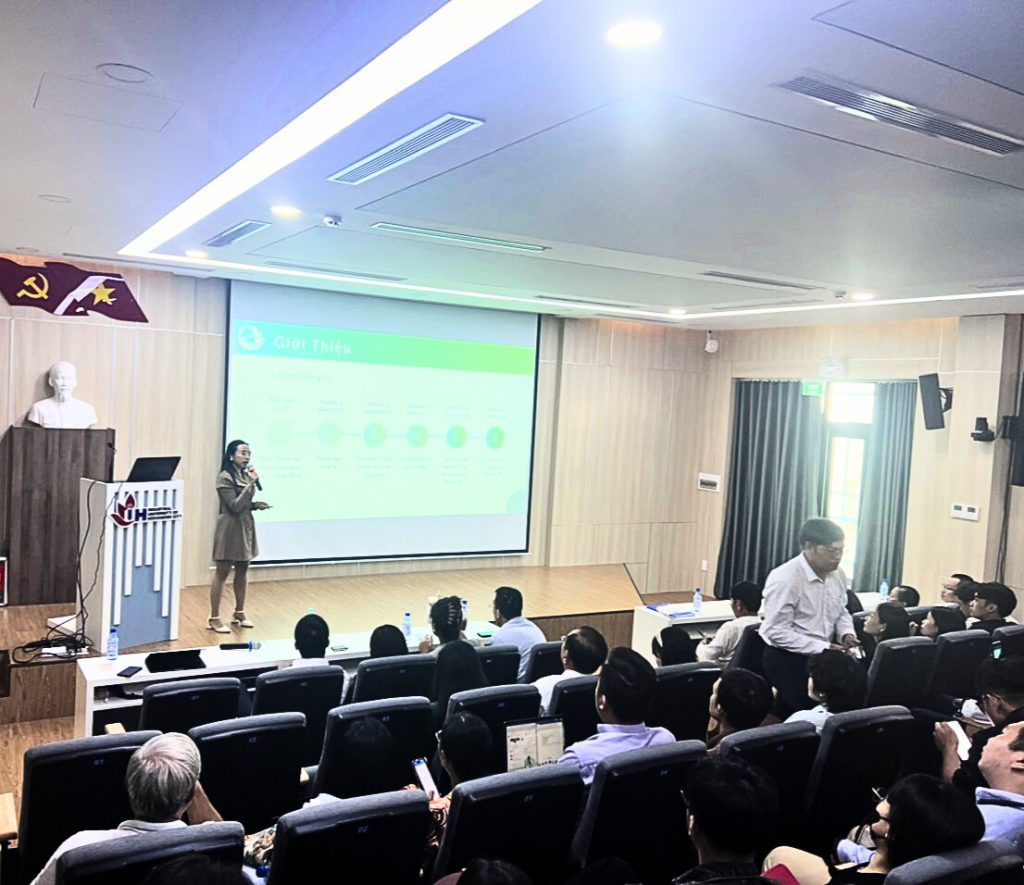
Understanding ESG
A significant portion of the presentation was devoted to demystifying ESG. Sunny offered a comprehensive overview of its components—Environmental, Social, and Governance—delving into the history and definitions that encapsulate the ESG framework. This segment served to ground the audience in the fundamental concepts and principles that underpin ESG.
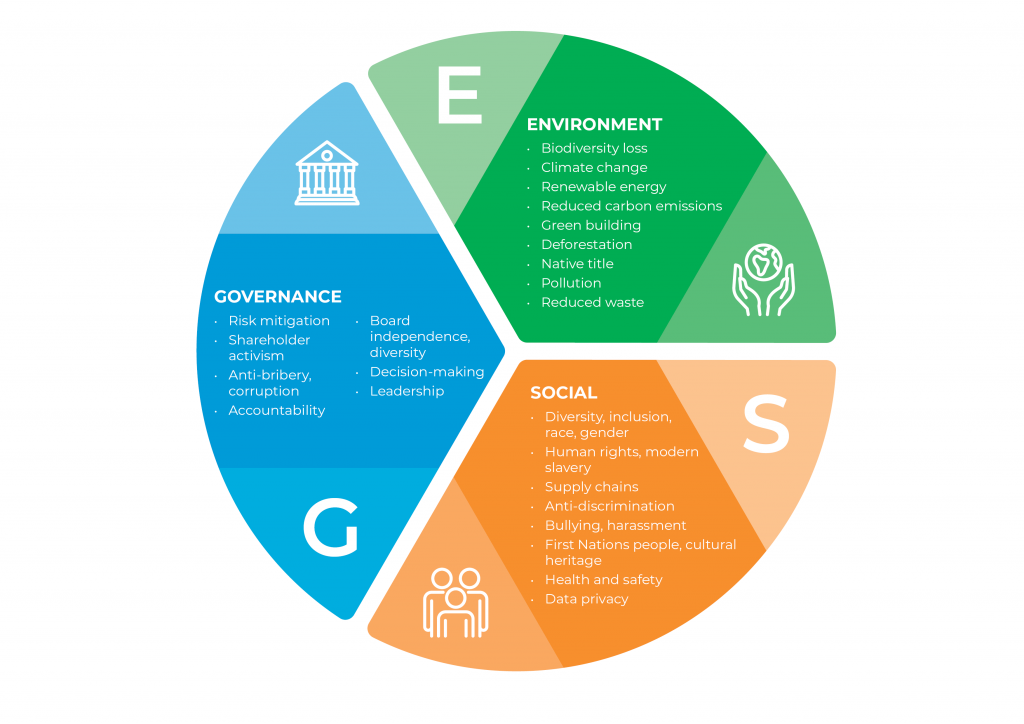
The Business Case for ESG
Sunny articulated the myriad benefits that ESG integration brings to businesses. From enhancing brand reputation and facilitating access to capital markets to ensuring legal compliance and optimizing risk management, the advantages of embedding ESG principles into business strategies are multifaceted and compelling. Sunny emphasized that ESG is not merely a compliance requirement but a strategic tool that drives business innovation and long-term value creation.
In exploring the relevance of ESG within the Vietnamese landscape, Sunny discussed the country’s commitments to climate change initiatives and the burgeoning interest in sustainable investing. She highlighted the critical role of ESG in aligning business practices with national and global sustainability goals, thereby contributing to Vietnam’s broader environmental and social objectives.
Developing and Implementing ESG Strategies
The culmination of Sunny’s presentation was a detailed roadmap for businesses looking to integrate ESG into their operations. She outlined the necessary steps for developing and implementing an ESG strategy, from initial assessment and goal setting to strategy execution and performance monitoring. Sunny underscored the importance of a systematic approach to ESG integration, one that is tailored to the unique context and objectives of each business.
In her concluding remarks, Sunny reaffirmed the pivotal role of ESG in shaping the future of business and investment. By weaving ESG principles into the fabric of corporate strategies, companies not only contribute to a more sustainable and equitable world but also enhance their resilience and competitiveness in the evolving global landscape.
Unveiling Insights into GHG Inventory
Dr. Ha’s presentation commenced with a compelling argument for the necessity of GHG inventory, outlining its pivotal role in supporting decision-makers to develop strategic plans and roadmaps for GHG emission reduction. He emphasized the alignment of these efforts with Vietnam’s international commitments under the UNFCCC and the Paris Agreement, showcasing the GHG inventory as an essential tool for evaluating the nation’s progress in reducing GHG emissions. Dr Ha Quang Anh was a member of the delegation accompanying Prime Minister Pham Minh Chinh at the COP28 conference in Dubai in December 2023.
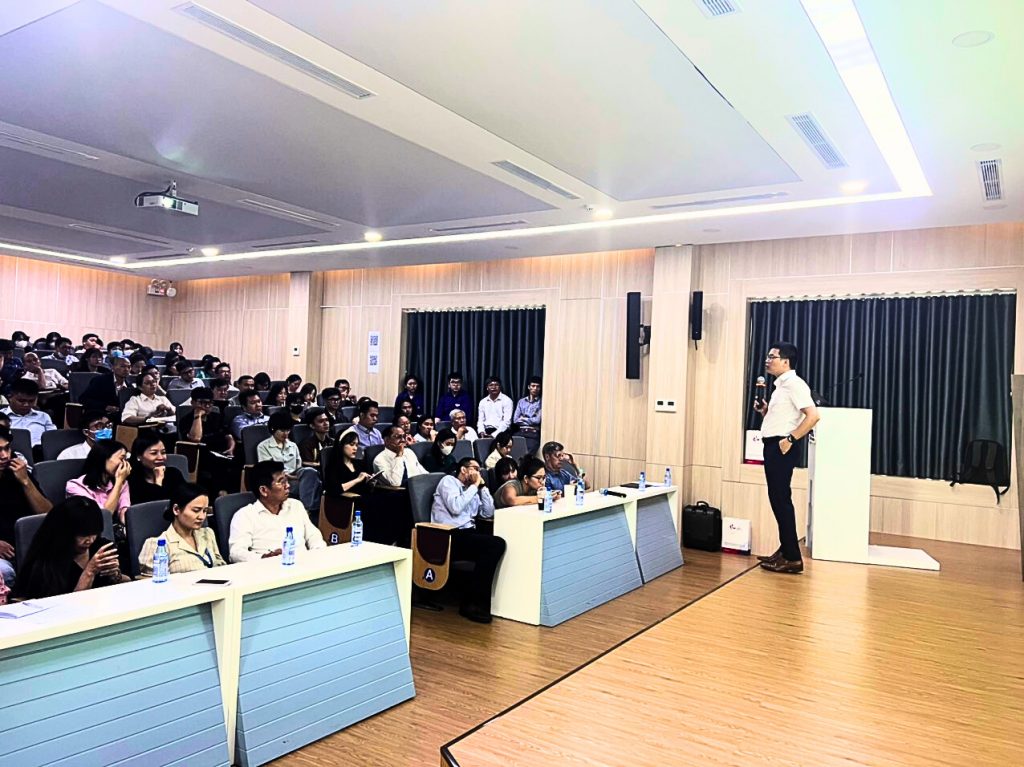
A significant portion of the presentation was dedicated to detailing Vietnam’s commitments, particularly at COP26, where Prime Minister Phạm Minh Chính articulated Vietnam’s strategy for renewable energy development and strong emission reduction measures. Mr. Ha meticulously outlined Vietnam’s updated commitments to reducing GHG emissions by 15.8% by 2030 with its resources, and up to 43.5% with international support, demonstrating a clear trajectory towards the ambitious net-zero target by 2050.
Mr. Ha further delved into the responsibilities of emission entities, guided by Decree 06/2022/NĐ-CP and Decision 01/2022/QĐ-TTg. He provided a detailed breakdown of sectors and entities mandated to conduct GHG inventories, specifying thresholds for annual emissions and energy consumption that trigger these requirements.
The roadmap for implementing GHG inventories laid out by Mr. Ha was particularly instructive. Starting from 2023, entities are to provide activity data and relevant information, moving on to conducting biennial GHG inventories from 2024. This structured approach ensures a systematic and consistent evaluation of GHG emissions at the entity level.
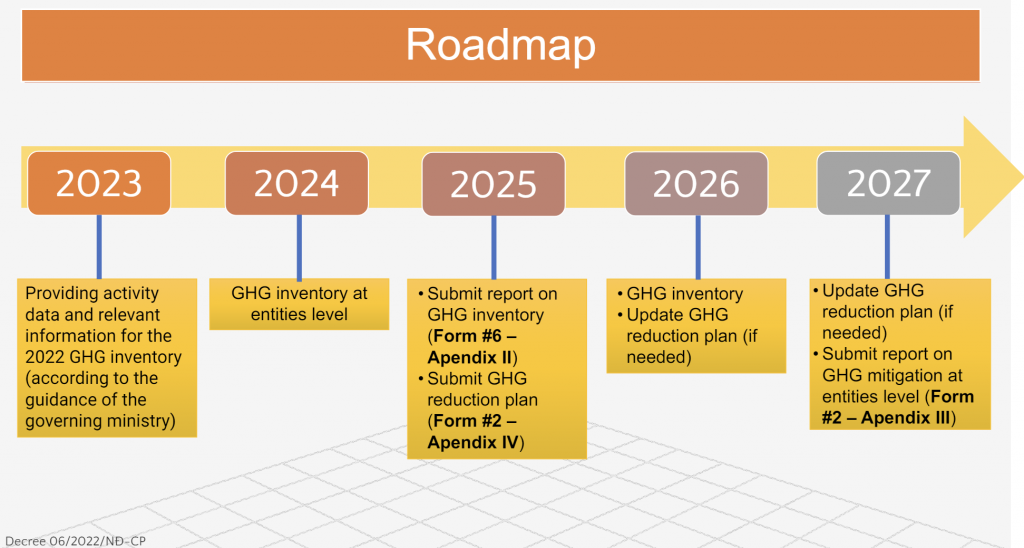
Mr. Ha’s discussion on the methodology for GHG inventory was exhaustive, covering everything from the selection of emission factors and data collection to the calculation of emissions and quality control. He emphasized the importance of accuracy, transparency, and consistency in the inventory process, adhering to international standards to ensure comparability across borders.
Renewable Energy Certificate Platform with REDEX
Alex Loh, the Business Development Director at REDEX, presented a comprehensive overview of Renewable Energy Certificates (RECs) and their role in corporate decarbonization strategies. His presentation covered the journey towards decarbonization, the intricacies of Scope 1, 2, and 3 emissions, and the operational framework of RECs within the context of global sustainability goals. Alex also shared about REDEX’s I-REC trading platform.
The Path to Decarbonization
Alex’s presentation began with an insightful exploration of the steps necessary for decarbonization. He emphasized the importance of understanding an organization’s GHG footprint, optimizing energy efficiency through low-carbon technologies, and the critical role of renewable electricity purchase, particularly through RECs. He highlighted the significance of RECs in offsetting Scope 2 emissions, which arise from purchased electricity, thereby contributing to a reduction in a company’s indirect GHG emissions.
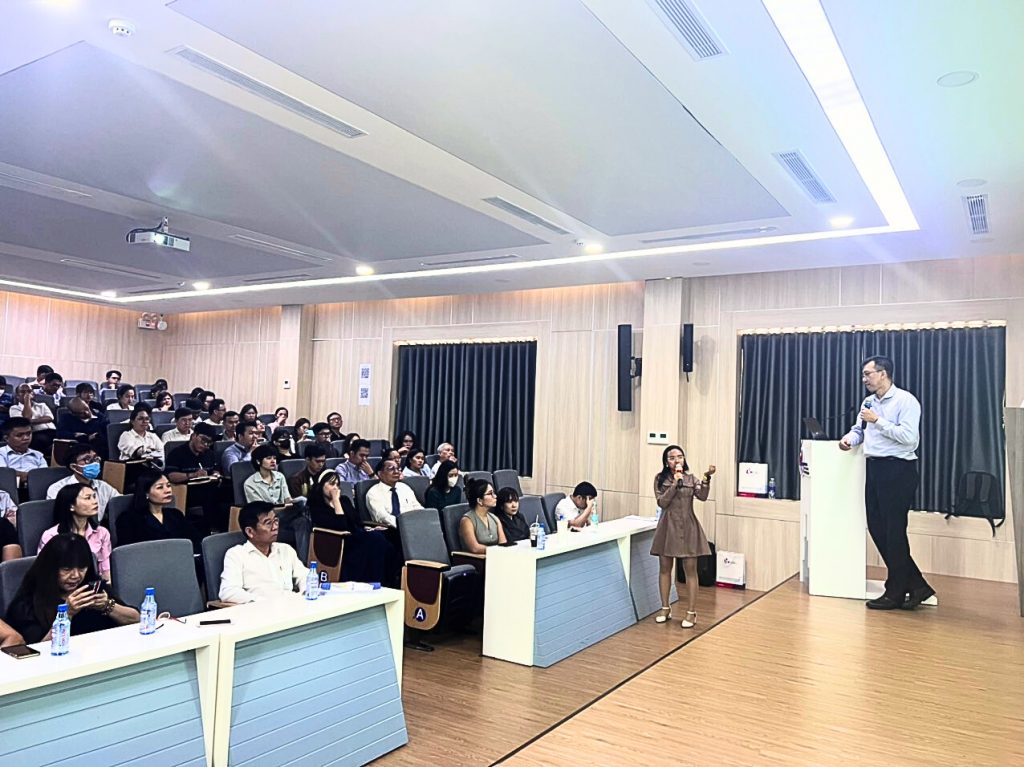
Understanding Scope Emissions
A significant portion of the presentation was dedicated to elucidating the concepts of Scope 1, 2, and 3 emissions. Alex provided a clear depiction of direct emissions from company operations (Scope 1), indirect emissions from purchased energy (Scope 2), and all other indirect emissions related to a company’s activities (Scope 3). This segment offered a foundational understanding necessary for comprehending how RECs specifically target and mitigate Scope 2 emissions.
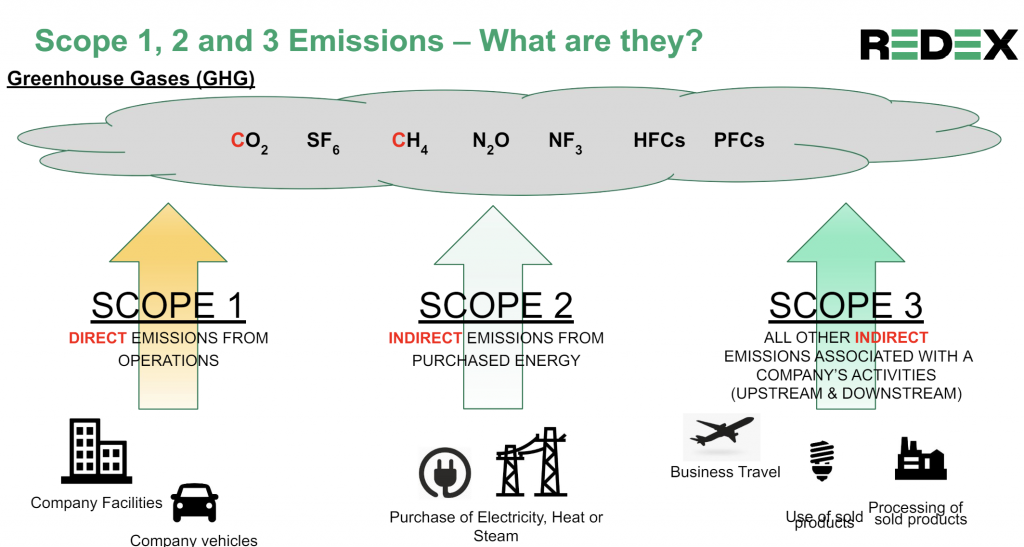
Gratitude and Interactive Exchange
The workshop culminated in a session of gratitude and interactive exchange. The organizers extended heartfelt thanks to all the participants for their engagement and insightful questions that enriched the discussions. The question and answer sessions following the presentations were vibrant with curiosity, demonstrating the participants’ keen interest in GHG management and ESG integration.
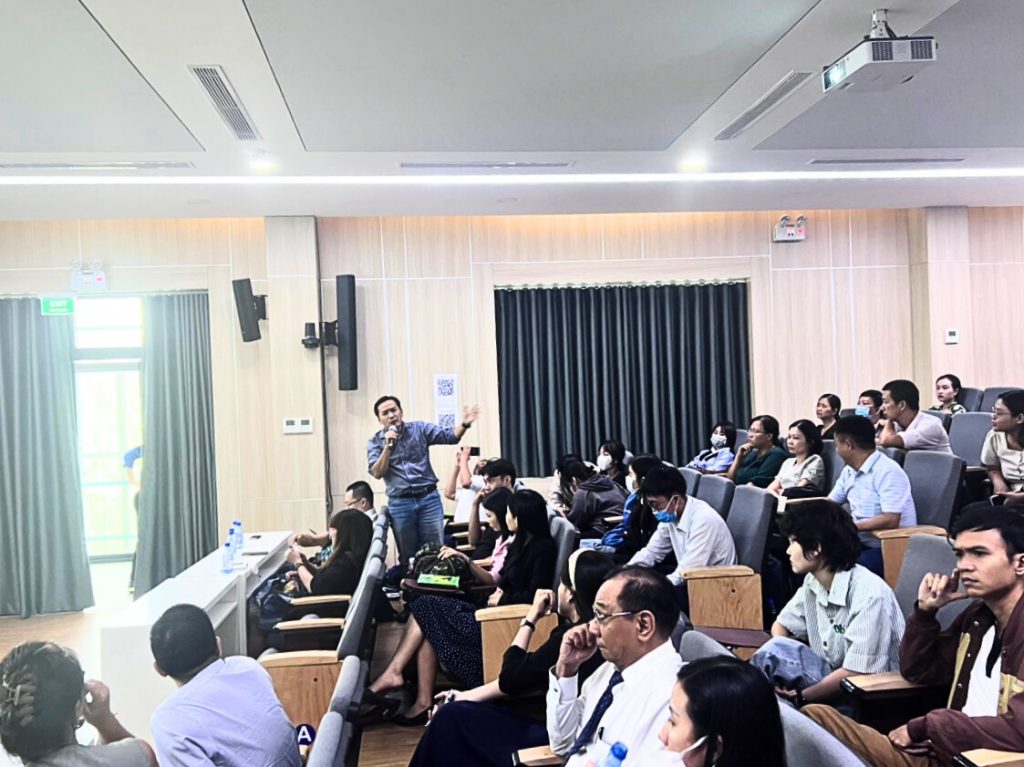
The workshop, through its comprehensive presentations and discussions, not only shed light on the critical aspects of GHG management and ESG integration but also charted a path for businesses to embed these sustainable practices into their core strategies. GreenUP’s role in co-organizing this event underscores its commitment to fostering a greener, more sustainable future, with the workshop marking a significant milestone in this ongoing journey.


